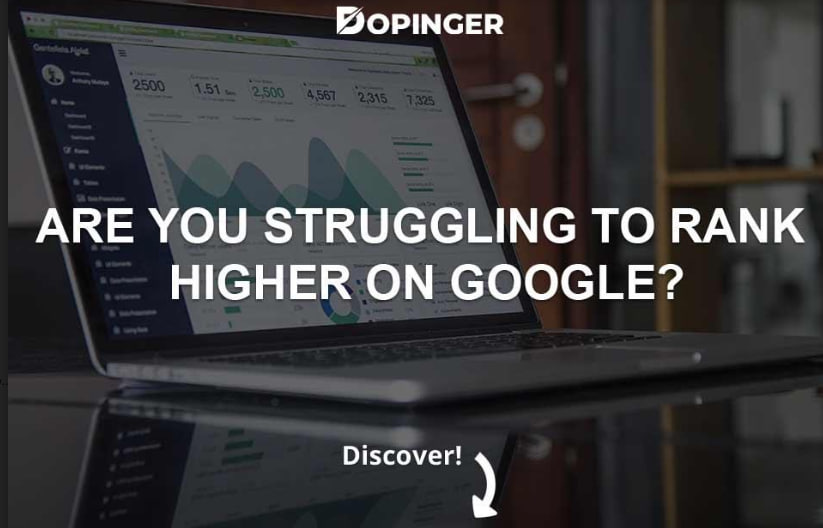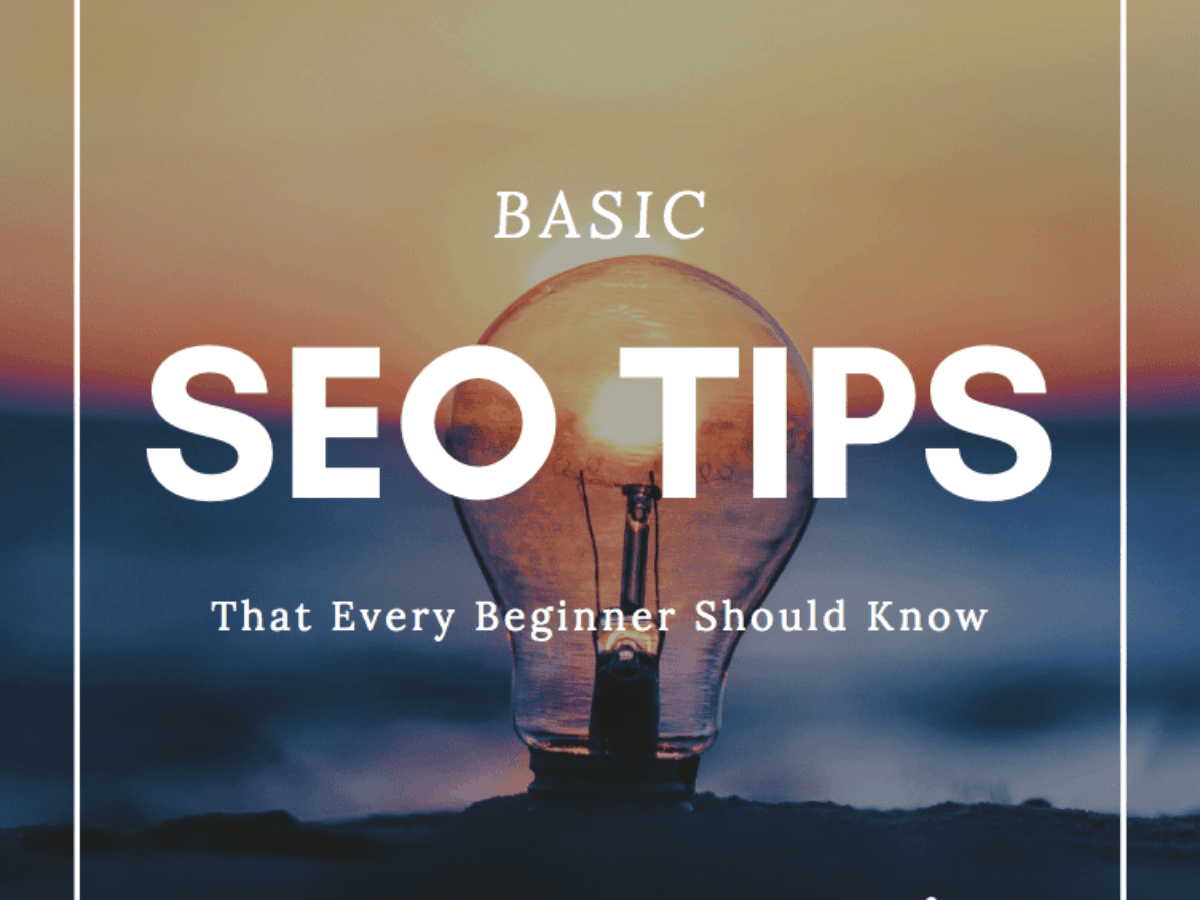In today’s digital age, securing a top spot on Google’s search results has become the holy grail for businesses and content creators alike. A higher ranking not only signifies credibility and authority in a particular niche but also translates to increased visibility, traffic, and potential revenue. But with millions of websites vying for that coveted first-page position, the competition is fiercer than ever.
If you find yourself constantly battling to climb the search engine ladder, you’re not alone. Many are grappling with the ever-evolving algorithms and SEO best practices.
In this article, we’ll delve deep into the intricacies of Google’s ranking system, uncover common pitfalls that might be holding you back, and provide actionable strategies to help you ascend to the top. Whether you’re a seasoned marketer or a beginner just dipping your toes into the vast ocean of SEO, there’s something here for everyone.

What Are Google’s Ranking Factors?
Google’s search algorithm is a complex beast, continually evolving and adapting to provide users with the most relevant and high-quality results.
While Google has never disclosed the exact number or specifics of all its ranking factors. SEO experts and industry studies have identified several key elements that play a significant role in determining a website’s position in search results. Here are some of the most crucial ranking factors:
- Quality Content: At the heart of Google’s ranking is the content. Websites that provide valuable, in-depth, and original content are more likely to rank higher. Google’s algorithms can detect the depth of the content, its relevance to the search query, and its originality.
- Backlinks: Backlinks, or incoming links from other websites, act as votes of confidence for your site. However, it’s not just about quantity; the quality and relevance of these links are paramount. Links from authoritative and relevant sites carry more weight.
- Mobile Optimization: With the increasing number of mobile users, Google gives preference to mobile-friendly websites. This includes responsive design, fast loading times on mobile devices, and easy navigation.
- Page Speed: Slow-loading pages can hurt your ranking. Google considers page speed as a ranking factor because a faster-loading page provides a better user experience.
- Secure and Accessible Website: Websites that use HTTPS, indicating they have a secure SSL certificate, are given preference over non-secure sites. Additionally, a well-structured URL and a robots.txt file can help search engines crawl and index your site more effectively.
- User Experience: Metrics like bounce rate, time on site, and pages per session can indicate the quality of user experience. A site that engages users and keeps them browsing is likely to rank higher.
- On-Page SEO: Proper use of keywords in the title, meta description, headers, and throughout the content can significantly impact rankings. However, it’s essential to avoid keyword stuffing and ensure natural usage.
- Domain Age and Authority: Older domains, especially those that have built authority over time, tend to rank higher than newer ones. However, this doesn’t mean new websites can’t rank well; it just might take a bit more time and effort.
- Technical SEO: A well-structured website with a clear sitemap, proper schema markup, and optimized images can significantly influence rankings.
- Social Signals: While the direct impact of social signals (likes, shares, tweets) on rankings is still a topic of debate, there’s no denying that positive social engagement can drive traffic and amplify content reach.
- Local SEO: For location-specific queries, factors like Google My Business listings, local reviews, and proximity to the searcher play a crucial role.
It’s worth noting that Google’s algorithm considers over 200 factors when ranking websites. The above list highlights some of the most influential ones. As the digital landscape evolves, so do these factors, making it essential for website owners and marketers to stay updated and adapt their strategies accordingly.
Common Mistakes That Affect Your Google Ranking

Navigating the intricate maze of Google’s ranking criteria can be daunting, and even the most seasoned SEO professionals can sometimes falter. While many are eager to implement advanced strategies to climb the search engine ladder, it’s often the overlooked basics that can cause the most significant setbacks. Here are some common mistakes that can adversely impact your Google ranking:
One of the most prevalent errors is neglecting mobile optimization. In an era where mobile searches have surpassed desktop, having a website that’s not mobile-friendly can be a severe detriment. Google’s mobile-first indexing means the search engine predominantly uses the mobile version of the content for indexing and ranking. Sites that aren’t optimized for mobile devices, leading to poor user experience, can see a significant drop in their rankings.
Another frequent oversight is poor-quality backlinks. While backlinks are a vital component of Google’s ranking algorithm, not all links are created equal. Many website owners, in their quest for higher backlink numbers, resort to shady practices like buying links or participating in link farms. Google’s sophisticated algorithms can detect such manipulative tactics, and websites can be penalized or even de-indexed for such practices. It’s always quality over quantity when it comes to backlinks.
Lastly, keyword stuffing remains a persistent issue. In the early days of SEO, packing content with keywords was a common tactic to rank higher. However, Google’s algorithms have evolved, and they now prioritize content that offers genuine value to readers over content that’s loaded with keywords for the sake of SEO. Overusing keywords can make content appear spammy and can lead to a ranking penalty.
Proven Strategies to Improve Your Search Engine Position

Achieving a top spot on Google’s search results is no small feat, but with the right strategies in place, it’s entirely attainable. Over the years, several methods have proven effective in boosting search engine positions. Here are some of those tried-and-true strategies:
Optimize for Voice Search
With the rise of smart speakers and voice-activated assistants, voice search has become increasingly prevalent. Ensuring your content answers common questions and is structured in a conversational tone can help you tap into this growing trend.
Focus on Long-Tail Keywords
While generic keywords can be highly competitive, long-tail keywords—specific phrases of three or more words—often have a lower competition level and a higher conversion rate. By targeting these, you can attract more qualified traffic.
Enhance User Experience
Google’s algorithms prioritize sites that offer a seamless user experience. This includes fast loading times, easy navigation, and mobile optimization. Regularly auditing your site for any user experience issues can lead to significant ranking improvements.
Regularly Update Content
Fresh, updated content signals to search engines that your website is active and relevant. Regularly revisiting and updating your older content can give it a new lease on life and improve its ranking potential.
Working With A Successful SEO Consultancy
One of the most effective ways to boost your search engine position is by partnering with a reputable SEO consultancy. These experts bring a wealth of knowledge and experience to the table, ensuring that your website is optimized using the latest best practices. For instance, Dopinger SEO Consultancy is a prime example of a firm that has consistently delivered results for its clients. With a track record of success and a comprehensive approach that covers everything from on-page optimization to backlink strategies, working with Dopinger can provide the expertise and guidance needed to elevate your website’s position in search results.
By implementing these strategies and staying updated with the ever-evolving world of SEO, you can significantly improve your search engine position and enjoy the myriad benefits that come with higher visibility.
Frequently Asked Questions
What are the most important things to focus on for ranking higher in Google?
The most important factors are creating high-quality, in-depth content focused on keywords people search for, improving technical SEO elements like site speed and mobile-friendliness, building a natural link profile from authority sites, and optimising for on-site user experience. Google wants to rank the most helpful, trustworthy sites.
How long does it take to start seeing results from SEO efforts?
It can take several months to begin seeing significant changes in rankings. SEO is an ongoing process requiring continual effort. Expect to work on it for 6-12 months before seeing major jumps in positions. But track progress in Search Console to see what is improving.
What should I do if my rankings suddenly drop?
If rankings suddenly decline, it may be due to a Google algorithm update. Check for any messages in Search Console. Diagnose whether you have technical issues or thin content issues. Then work on remedying any problems and wait for rankings to stabilise again. Staying up-to-date with best practices can help minimise volatility.
How do I track my SEO results over time?
Use Google Search Console to monitor rankings for target keywords as well as clicks/impressions data. Look at Google Analytics to analyse organic traffic and see which pages get attention. Set up tracking to monitor progress month-to-month. Be patient and focus on continual improvement.
How often should I publish new content to help with SEO?
Aim to publish new long-form, keyword-focused content at least 1-2 times per month. More frequently is even better. This gives Google fresh pages to index and serves users well by providing a steady stream of content. Over time, regularly published content adds up in value.
Should I focus on backlinks for ranking higher?
Yes, earning backlinks from reputable sites is hugely influential for SEO. But focus on getting them naturally from mentions or outreach, not buying links. Build them slowly and steadily. Getting just 10-20 solid backlinks to a page can make a notable difference in some cases.
Is video content useful for improving Google rankings?
Absolutely. Including videos in your content can boost engagement and rankings, as Google owns YouTube. Optimise videos with keywords, transcripts and descriptive metadata. Embed them in relevant blog posts and promote them on YouTube. Video content brings pages to life.
How important are keywords in alt text and image filenames?
Extremely important. Google can’t “see” images, so alt text and descriptive filenames that include target keywords help Google understand the focus of visual content. This can provide a useful SEO boost for image-heavy pages.
What’s a better approach – targeting many broad keywords or fewer more niche ones?
It’s best to use a combined approach. Target some head broader terms that get more search volume as well as more specific long-tail keywords closely aligned to your niche. Balance search volume with targeting less competitive keywords. An ideal mix brings in enough traffic while still ranking well.
Disclosure: The articles, guides and reviews on BlowSEO covering topics like SEO, digital marketing, technology, business, finance, streaming sites, travel and more are created by experienced professionals, marketers, developers and finance experts. Our goal is to provide helpful, in-depth, and well-researched content to our readers. You can learn more about our writers and the process we follow to create quality content by visiting our About Us and Content Creation Methodology pages.

